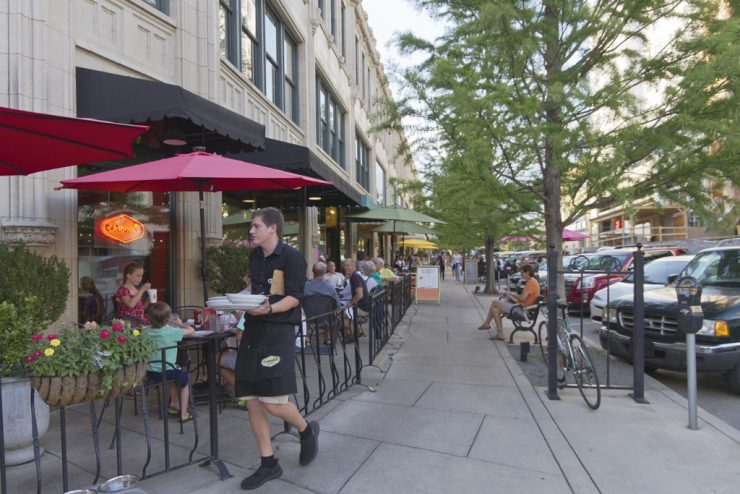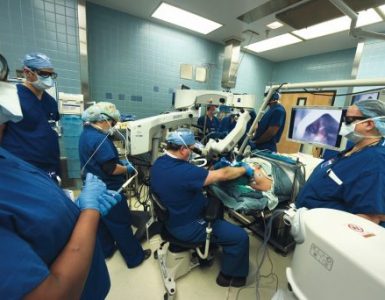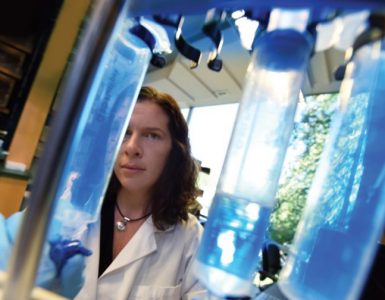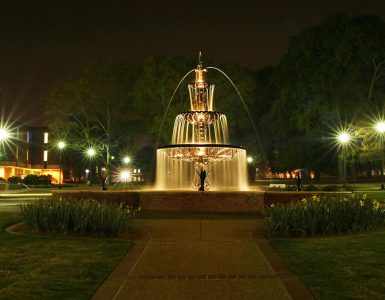For the past two years, Dr. Marsha Loda, associate professor in the James M. Hull College of Business, has been taking business students on a study-away trip to Asheville, North Carolina, and while there’s obviously a lot of fun to be had on a trip like that, there’s also important work to be done.
Asheville: A Millennial Case Study is a serious look at the impact millennial travel attitudes are having on Asheville with the goal of applying that understanding closer to home. It provides a qualitative overview about why millennials move to and visit Asheville, the words they use to describe the city and what they like most and least about it.
“Essentially, we are trying to discover why so many millennials flock to Asheville in the hopes of suggesting strategies to Augusta and other cities about how to attract this important age group,” Loda says. “This age group is now the largest age cohort in the country and is a coveted market segment by essentially every destination in the world, and they are both visiting and moving to Asheville in droves.”
Loda says their findings have been shared with Asheville tourism officials as well as with the Augusta Convention and Visitors Bureau, which was interested in the information and will possibly participate in a future trip.
Using basic investigative research tools and strategies, students are required to complete 10 random, in-person interviews, equally divided between millennial tourists and millennial residents of Asheville. A later content analysis distills the comments to the most common denominators.
So just what have they discovered?
“Tourists love the food, the beer and the Asheville people,” Loda says. “As for residents, they like the sense of community, the people and the variety of things to do. What they like least are the tourists.”
This underscores the “devil’s bargain” of tourism — too much tourism brings with it social and environmental consequences.
For the students, most of whom participate in the study-away research to complete the requirements for the new hospitality certificate or use it as a business elective, the trip allows them to experience tourism from a different perspective — from the eyes of a hospitality manager instead of just a tourist.
“We are experiencing many different aspects of the tourism product, from adventure tourism to food tourism, and from both the moderate to luxury ends of the spectrum,” Loda says. “Anyone in the service industry can benefit from such an experience.”
As for Augusta, which is eager to capitalize on the growing number of millennials attracted to the burgeoning cyber industry, these trips can supply valuable information about how the city can benefit from this population without making a deal with the devil.










